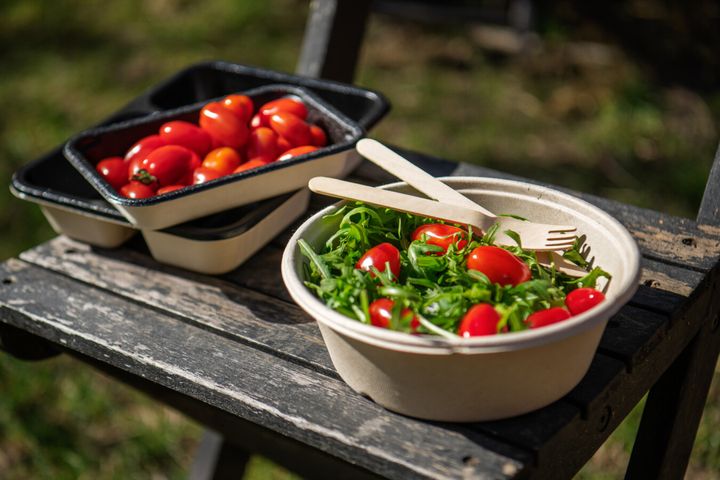The EU’s Framework Ecodesign for sustainable products acknowledges renewable materials
On the 23 April, the European Parliament gave its final consent to the agreement on the Ecodesign for Sustainable Products Regulation (ESPR) which aims to make sustainable products the norm in the European Union.

“This is an ambitious and comprehensive framework for products within the EU. As an industry based on renewable resources, we appreciate that sustainable renewable content is acknowledged as an important parameter for more sustainable products”, says Viveka Beckeman, Director General of the Swedish Forest Industries.
Delegated acts will be developed in the upcoming implementation phase, and the extent of information needed for the Ecodesign parameters will be clarified.
“The preparation of supporting documentation for the Digital Product Passport will be crucial, as it will involve the whole value chain for all products. The documentation will also define, how the passport information should be evaluated and, ultimately, contribute to the norm of sustainable products”, says Kai-Yee Thim, Director of Product Policy at the Swedish Forest Industries.
The Council is expected to vote in May and shortly thereafter, the final legislative text is expected to be published in the OJEU.
The Commission will adopt an ESPR Working plan within nine months of the introduction of the ESPR. A considerable amount of delegated acts will be developed, such as those for ecodesign requirements for specific product groups. It will be possible to provide input for the delegated act process through the Ecodesign Forum, which will be established, and through consultations.
About ESPR
ESPR is a broadening of the scope of the current Ecodesign Directive concerning requirements and range of products. The main objective of the proposals is to reduce the negative life cycle environmental impacts on almost all products and improve the function of the single market. The proposal establishes a framework to set ecodesign requirements for specific product groups to significantly improve their circularity, energy performance and other environmental sustainability aspects.
All regulated products are proposed to have a Digital Product Passport according to a set of information requirements. The aim is to make it easier to repair or recycle products and facilitate tracking substances of concern along the supply chain.
The requirements for product groups are proposed to be further developed through delegated acts and an expert group, the “Ecodesign Forum”. Furthermore, the ESPR includes measures to prevent the destruction of unsold gods.
Nyckelord
Kontakter
Alexander OrlingePress manager
Tel:+46 (0)8-762 72 20alexander.orlinge@forestindustries.seLänkar
Följ Swedish Forest Industries
Abonnera på våra pressmeddelanden. Endast mejladress behövs och den används bara här. Du kan avanmäla dig när som helst.
Senaste pressmeddelandena från Swedish Forest Industries
PPWR: “Our industry is ready to contribute”29.4.2024 06:30:00 CEST | Pressmeddelande
The EU Parliament recently gave its consent to the trilogue agreement on the Packaging and Packaging Waste Regulations (PPWR). The Swedish Forest Industries Federation (SFIF) supports the legislation which aims to reduce the environmental impact of packaging in the context of its ambition to reach net zero carbon emissions by 2050.
Kaisa Soro-Pesonen joins the Swedish Forest Industries as Head of its Brussels office16.4.2024 14:00:14 CEST | Pressmeddelande
Kaisa Soro-Pesonen will join the Swedish Forest Industries Federation (SFIF) as Director and Head of the Brussels Office. Kaisa joins the SFIF from a position as Head of the Brussels Office for the Confederation of Finnish Industries. Kaisa has an extensive experience from working with EU decision-making and public affairs, both as Policy coordinator at the European Commission and Managing Director of Miltton Europe and Partner at Kreab in Brussels.
A greener, stronger European Union - The Swedish Forest Industries Federation´s input to EU ´s next political programme11.4.2024 07:30:00 CEST | Pressmeddelande
The Swedish Forest Industries' Federation has published its position on the EU's next political programme, highlighting four areas that need to be prioritized in the coming years. The Federation advocates for the continuation of the Union's ambitions in the climate and environmental domains, coupled with a strengthened focus on the circular bioeconomy and competitiveness.
Carbon Removal Certification Framework: “For the good of the climate, do not limit forestry”20.2.2024 07:56:49 CET | Pressmeddelande
The EU has agreed on a framework for the certification of carbon removals, following negotiations between the Commission, Parliament and the Council of Ministers. Swedish Forest Industries Director General Viveka Beckeman believes that the forest industry’s climate work may benefit from the scheme as long as it is not used to limit active forest management.
Wood harvesting is part of the climate solution14.6.2021 10:43:32 CEST | Press release
A recent study commissioned by the Swedish Forest Industries on the environmental effect of wood harvesting in Sweden shows that the climate will not be better off if wood harvesting was restricted, and carbon stored in the forest. The assumption, which is often applied in EU policy discussions, instead leads to higher fossil emissions and more carbon dioxide in the atmosphere. The forest bioeconomy is built on carbon circularity and wood harvesting. It provides for stable carbon storage in the forest as well as considerable displacement of fossil-based products. The conclusions are relevant for several on-going European Green Deal policy discussions, such as the revisions of the EU Forest Strategy, the LULUCF Regulation and the Renewable Energy Directive.
I vårt pressrum kan du läsa de senaste pressmeddelandena, få tillgång till pressmaterial och hitta kontaktinformation.
Besök vårt pressrum